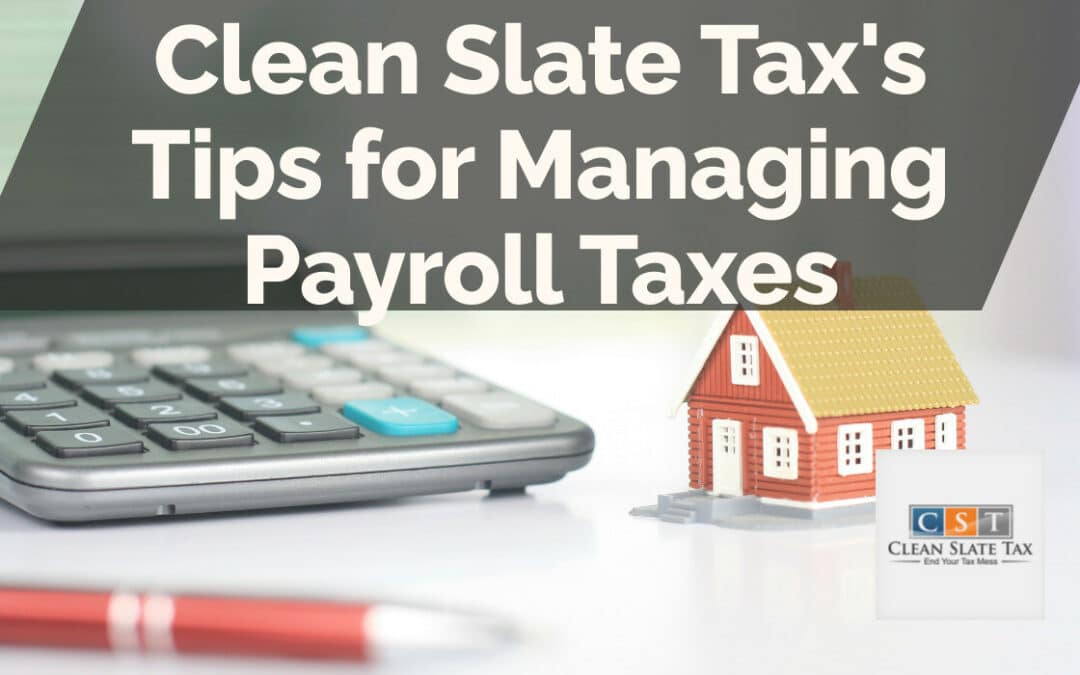Payroll taxes can present a maze of complexities that can leave many businesses in a lurch. However, understanding how to manage them is critical not only to remain on the right side of the law but also to maintain a healthy bottom line. Clean Slate Tax is renowned for its ability to simplify tax issues for businesses of all sizes, and in this article, we shall share their expert advice regarding payroll taxes.
Understanding Payroll Taxes
Before delving into tips for managing payroll taxes, it is essential to understand what they are. Payroll taxes are taxes employers withhold from their employees’ salaries and wages, then remit to the government. These taxes usually include federal income tax, state and local income tax, Social Security tax, and Medicare tax.
Clean Slate Tax’s Payroll Tax Management Tips
Managing payroll taxes can seem daunting, but with the following Clean Slate Tax’s tips, the process becomes much more comfortable.
- Always maintain accurate employee data: incorrect data can increase your tax liability significantly.
- Stay aware of payroll tax deadlines: Late submission of payroll taxes can result in substantial penalties and interest charges.
- Keep abreast with tax laws and changes: Regularly visit IRS or relevant state tax websites to stay up-to-date on tax law changes.
- Consider hiring a payroll professional: If your business’s needs are too complicated to handle internally, hiring a payroll tax professional can save you time and potential legal issues.
Frequently Asked Questions
What are the typical penalties for late payment of payroll taxes?
The penalties can range anywhere between 2% and 15% of the total tax due, depending on the length of the delay.
What can employers do if they can’t pay payroll taxes on time?
Employers can consider setting up a payment plan with the IRS or their state tax authority to avoid more severe penalties.
What types of businesses are most at risk of payroll tax issues?
All businesses are at risk, but small businesses in growth phases where cash flow might not be predictable are particularly vulnerable.
Conclusion
Successfully managing payroll taxes requires punctuality, accuracy, regular education on changes to tax laws, and possibly professional assistance. As Clean Slate Tax recommends, understanding the ins and outs of payroll tax can save your business from costly mistakes and legal hassles. So, every diligent business should take payroll taxes seriously and manage them effectively.





